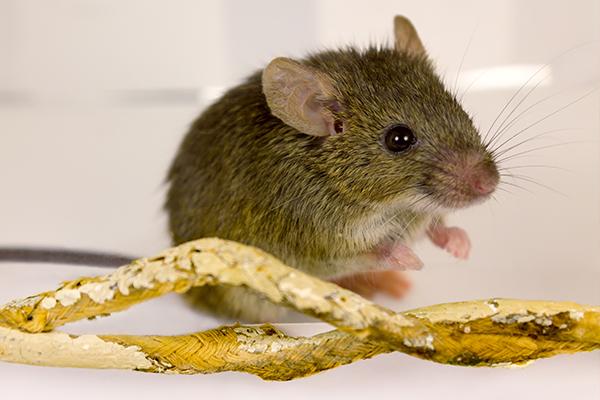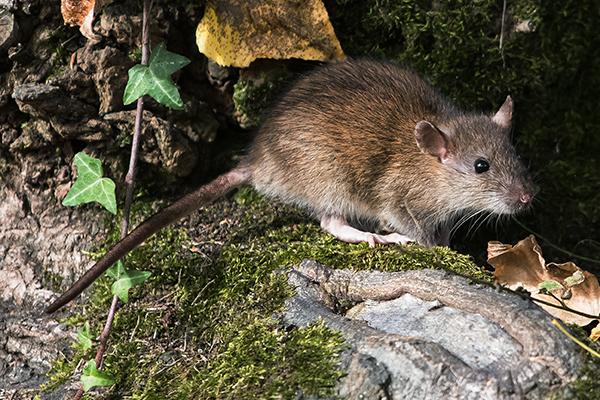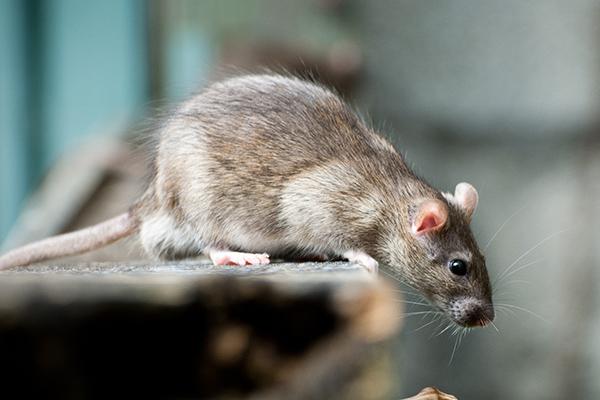
Rodents
What types of rodents are common in South Carolina?
Rodents are very common home-invading pests and can cause some serious problems when they find their way inside. In our area, there are many different rodent species that can be found living, breeding, feeding and invading properties throughout Lexington, Columbia, and the Midlands of South Carolina. Some helpful information about the most common rodents found in South Carolina as well as some useful prevention tips and professional advice on dealing with rodent infestations is listed below!
House Mice

The house mouse is a common home invader. These mice enter homes or businesses any time of year, though they actively begin seeking warm, safe shelter when the weather cools in the late fall.
House mice have small, slender bodies that grow to between 2 ½ and 3 ¾ of an inch in length, with their tail adding another 3 to 4 inches to their total length. Their tails and large ears are covered in a light layer of soft, velvety fur and they have small, dark eyes. The color of their fur can vary from grayish-brown, dark gray, or black in color. Their underbelly is always lighter in color than their body, usually a tan or whitish color.
Norway Rats

Norway Rats have heavy, dense bodies and are not very agile. They are not great climbers and typically enter homes and other buildings on the ground floor. Norway Rats have blunt noses, small round ears, and bulging, small black eyes. Their shaggy fur is brown or gray in color; their underbellies are lighter gray or white in color. Norway Rats have bodies that grow to about 9 ½ inches in length, with their bi-colored tails adding another 6 to 8 inches.
Roof Rats

Unlike Norway rats, roof rats have thin, light bodies. They are excellent climbers, and typically enter homes and other buildings from the roof. Roof rats are darker in color than Norway rats. They are usually dark brown or black in color with gray-colored hairs sprinkled throughout. Their bellies are lighter in color. Roof rats can grow to between 6 and 8 inches in length, and their long, scaly tail adds 6 to 8 more inches to their total body length. Roof rats can also be identified by their pointed noses, large ears, and large, dark-colored eyes.
Our FAQ
Have questions? We are here to help. Still have questions or can't find the answer you need? Give us a call at 803-921-8829 today!
-
How do you get rid of rodents?The best way to get rid of rodents is NOT to run to your local, big box store and pick up piles of traps, baits, and other DIY rodent control solutions. DIY rodent control can not only be dangerous due to the improper placement of baits and traps or improper usage of control products, but is also typically ineffective.
To eliminate rodents and keep them from returning, you must have a deep understanding of rodent behavior and know how, where, and why they enter homes and other buildings. To completely eliminate a rodent infestation from your home, the best option is to contact a rodent control professional. A professional will provide accurate identification and inspection services as well as treatment solutions and follow-ups. They will get to the root of the rodent infestation, completely eliminate them, and preventing their return. When you're in need of rodent control, you can count on the trusted South Carolina rodent control exterminators to get the job done right!
The Original Bugman Pest Elimination, Inc. offers highly-effective rodent control services throughout our South Carolina service area. Our quarterly home pest control protection plan works to solve problems you may be experiencing with rodents and other common pests. To learn more about our rodent control services, reach out to us today! -
How do you prevent rodents?
Rodents are very common household pests. The following tips can help to prevent problems with rodents inside your South Carolina home:
- Inspect the exterior of your home and seal any openings found in the exterior of your home no matter how small they may be; a mouse can squeeze their way inside through a space the size of a dime.
- Trim back tree limbs, shrubs and bushes back away from the exterior of your home.
- Make sure that all outdoor trash cans have tight-fitting lids on them.
- Place garden areas, woodpiles, and compost piles a distance away from the exterior of your home.
- Pick-up uneaten pet food in between feedings.
- Inside, make sure to keep all food either in the refrigerator or in air-tight containers with locking lids.
- Keep the clutter throughout your home to a minimum.
-
How do rodents get in your home?Rodents can find their way into homes and other buildings while foraging for food, water, and shelter. They can squeeze their way in through holes found along the roof line, at roof intersections, or even down through the chimney. Rodents can also shimmy through spaces found in the foundation, underneath exterior doors, or spaces found around windows.
Torn window or door screens, spaces found around utilities, and gaps around air-conditioners also provide perfect entry points for rodents as well. Once indoors, they are typically found living in attics, basements, inside wall voids, behind large appliances, and inside or behind storage boxes. -
Are rodents dangerous?
Rodents are dangerous to people and our property for several different reasons, including:
- They contaminate food sources and the surfaces of a home with their urine, feces, and saliva.
- Mice and rats spread a wide variety of diseases including Lymphocytic Choriomeningitis (LCM), Hantavirus, Dysentery, and Leptospirosis.
- Rodents spread bacteria like Salmonellosis, which can cause vomiting and diarrhea.
- Mice and rats can introduce parasites into your home such as fleas, mites, and ticks.
- They can damage our property; rodents constantly chew on objects to prevent their continuously growing front incisors from overgrowing. When they do so inside our homes, they often chew through and damage furniture, clothing, flooring, drywall, insulation, pictures, walls, and more. Invading rodents can even cause fires by chewing through live wires.
- Rodents sometimes cause water damage or even flooding issues by chewing through pipes.

Hear From Our Happy Customers
At The Original Bugman Pest Elimination, Inc., your satisfaction is our priority! See for yourself what our customers have to say about working with us.
-
"Wonderful Company"
Johnny came out today and was very knowledgeable and kind. He did a great job and went above and beyond.
Peggy R. -
"Very Respectful"
Not only did they show up early, they were very professional, and personable.
Hope B. -
"Highly Recommend"
We love Bugman! We have used them for many years.
Katie F. -
"GREAT Job!!"
We had our quarterly pest treatment this week and I wanted to take a moment to thank their technician, Johnny, for his professionalism, courteousness, and quality of work!
Travis K. -
"Just like Family"
We love Bugman! It’s nice knowing that we have local friendly people like Amanda answering the phone at the office and a clean cut respectful technician showing up at our door.
Pat C. -
"Great Service"
This was the first time he’d come but was professional, kind, attentive to my concerns and a wonderful representative of your business.
Kay L. -
"Can't Say Enough Good Things"
He, honestly, is the only service person who EVER shows up on time.
Kiki G. -
"Prompt & Thorough"
I really feel that I get my money's worth with this company and trust Johnny's knowledge about treating for the pests at my home.
Sharon F.